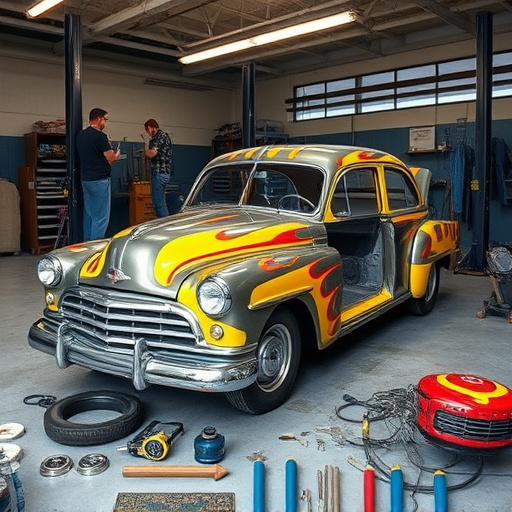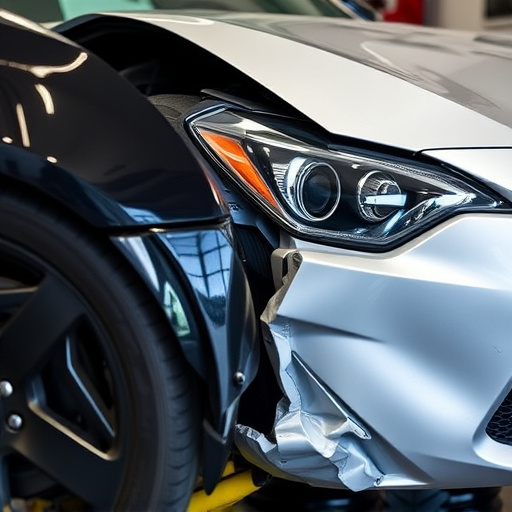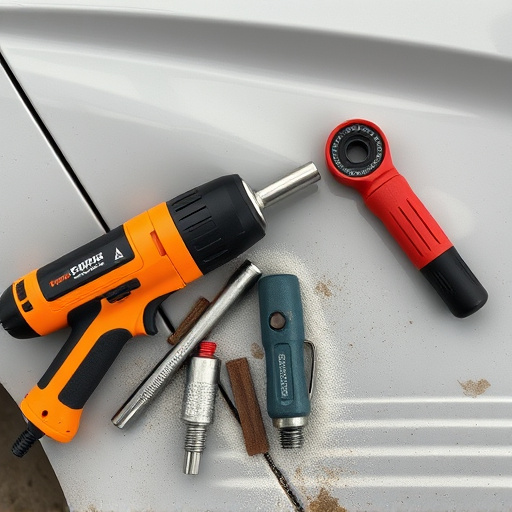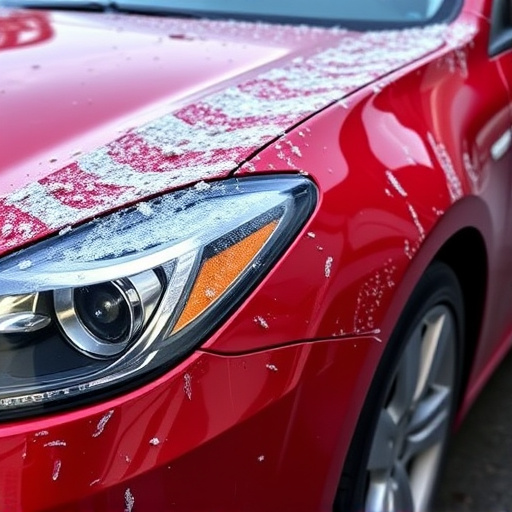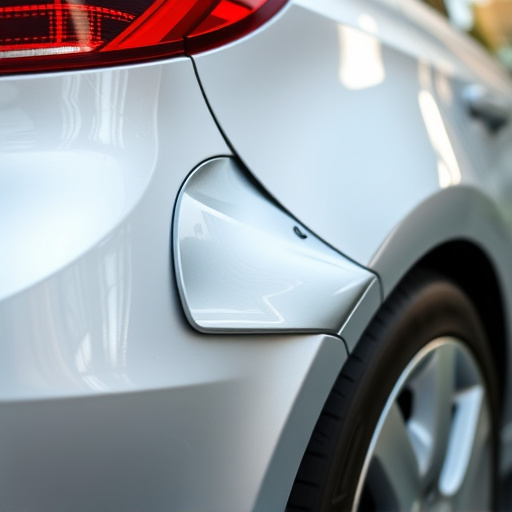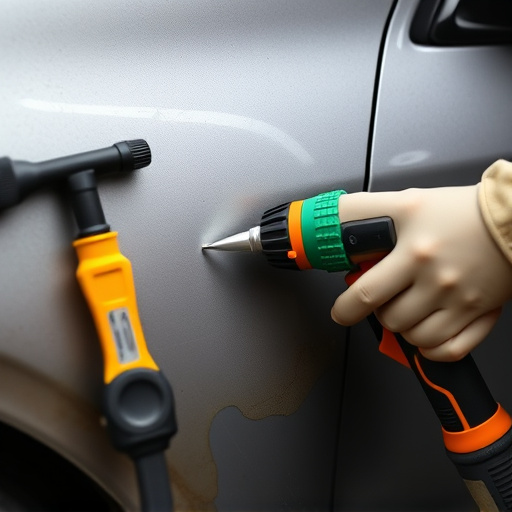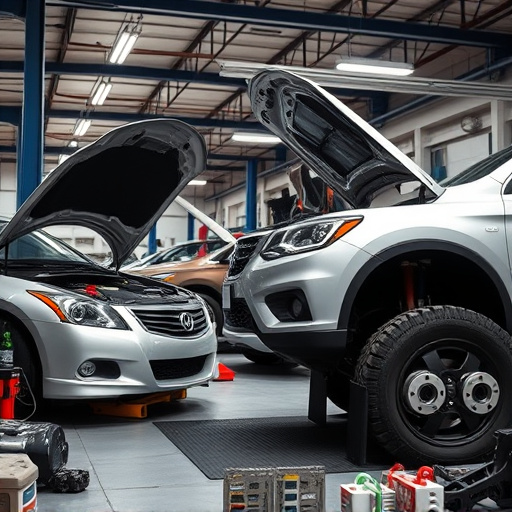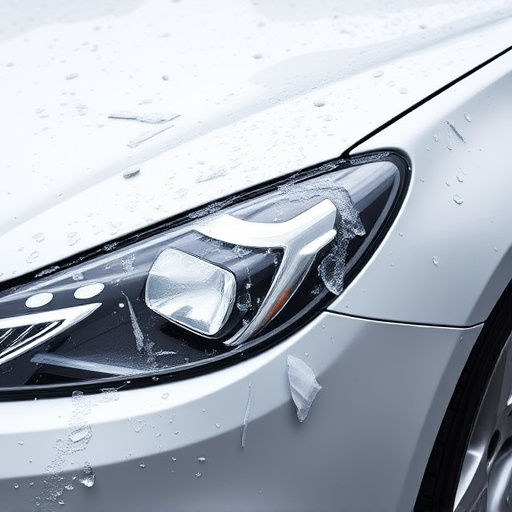Solvent-based auto paint offers high-quality finishes, vibrant colors, and robust protection against environmental factors for vehicles in diverse climates. Widely used in automotive manufacturing and collision repair, its durability and precision make it ideal for various industries requiring superior bonding strength and long-lasting performance. Choosing the right solvent is crucial, considering vehicle type, surface condition, desired finish, and local climate to ensure optimal results.
Solvent-based auto paint is a game-changer in the automotive industry, offering superior durability and precision finishing. This advanced system caters to diverse needs, from professional bodyshops to DIY enthusiasts. In this comprehensive guide, we explore the unique properties and advantages of solvent-based auto paint, the industries it benefits most, and crucial factors for selection. Uncover why this paint system stands out as a top choice for achieving high-quality, long-lasting results.
- Understanding Solvent-Based Auto Paint: Properties and Advantages
- Industries and Professionals Leveraging Solvent-Based Paint Systems
- Choosing the Right Solvent: Factors and Considerations for Optimal Performance
Understanding Solvent-Based Auto Paint: Properties and Advantages

Solvent-based auto paint is a specialized coating designed for automotive applications, offering distinct properties and advantages that set it apart from other types of paint. This formulation utilizes solvents to achieve a smooth, durable finish, making it an excellent choice for both professional auto body painting and car restoration projects. The primary benefit lies in its ability to provide superior coverage and adhesion, ensuring that the paint bonds firmly to various automotive surfaces, even those with complex contours or intricate designs.
Moreover, solvent-based auto paint offers a range of benefits beyond its application versatility. These paints are known for their excellent color vibrancy and depth, delivering a rich, glossy finish that enhances the overall appearance of vehicles. Additionally, they provide robust protection against environmental factors such as UV rays and harsh weather conditions, prolonging the lifespan of the painted surface. This makes them particularly advantageous in regions with varying climates or high sunlight exposure, contributing to the longevity of collision repair services and car restoration work.
Industries and Professionals Leveraging Solvent-Based Paint Systems

In industries where precision, durability, and aesthetics are paramount, solvent-based auto paint systems have proven to be a reliable and versatile solution. From automotive manufacturing plants to specialized auto collision centers, this technology is widely adopted for its ability to create smooth finishes that meet stringent quality standards. Car paint services professionals appreciate the control offered by solvent-based systems, allowing them to achieve complex color matches and intricate designs with ease.
Moreover, these systems are not limited to cars; they find application in various sectors such as aviation, marine, and even construction. Professionals in these fields rely on solvent-based paint for its exceptional bonding strength, resistance to extreme conditions (like heat or water), and long-lasting performance. This versatility makes it a preferred choice for projects requiring high-quality finishes that endure rigorous use and exposure to diverse environments.
Choosing the Right Solvent: Factors and Considerations for Optimal Performance

Choosing the right solvent for a solvent-based auto paint system is crucial for optimal performance and long-lasting results, especially in demanding automotive environments. Factors such as the type of vehicle, the condition of the surface being painted (like its porosity and smoothness), and the desired finish quality play a significant role. For instance, for intricate Mercedes-Benz repairs involving dent repair or collision repair, a solvent with low volatility and high boiling point might be preferable to ensure even paint distribution without causing any damage during the drying process.
Additionally, environmental factors like temperature and humidity can influence solvent choice. In humid climates, water-based solvents may be more suitable due to their reduced risk of solvent evaporation before the paint sets. Conversely, for regions with colder weather, a solvent with faster drying times could prevent paint from being affected by frost or freezing during application, ensuring smoother, more consistent results in auto dent repair or collision repair shops.
Solvent-based auto paint offers a range of advantages, making it a preferred choice for various industries and professionals. Its unique properties ensure superior performance, durability, and versatility in diverse applications. By carefully selecting the right solvent, which depends on factors like desired finish, environmental conditions, and safety regulations, users can maximize the benefits of solvent-based auto paint systems. This approach leads to high-quality, long-lasting results, catering to both industrial-scale projects and specialized automotive needs.
